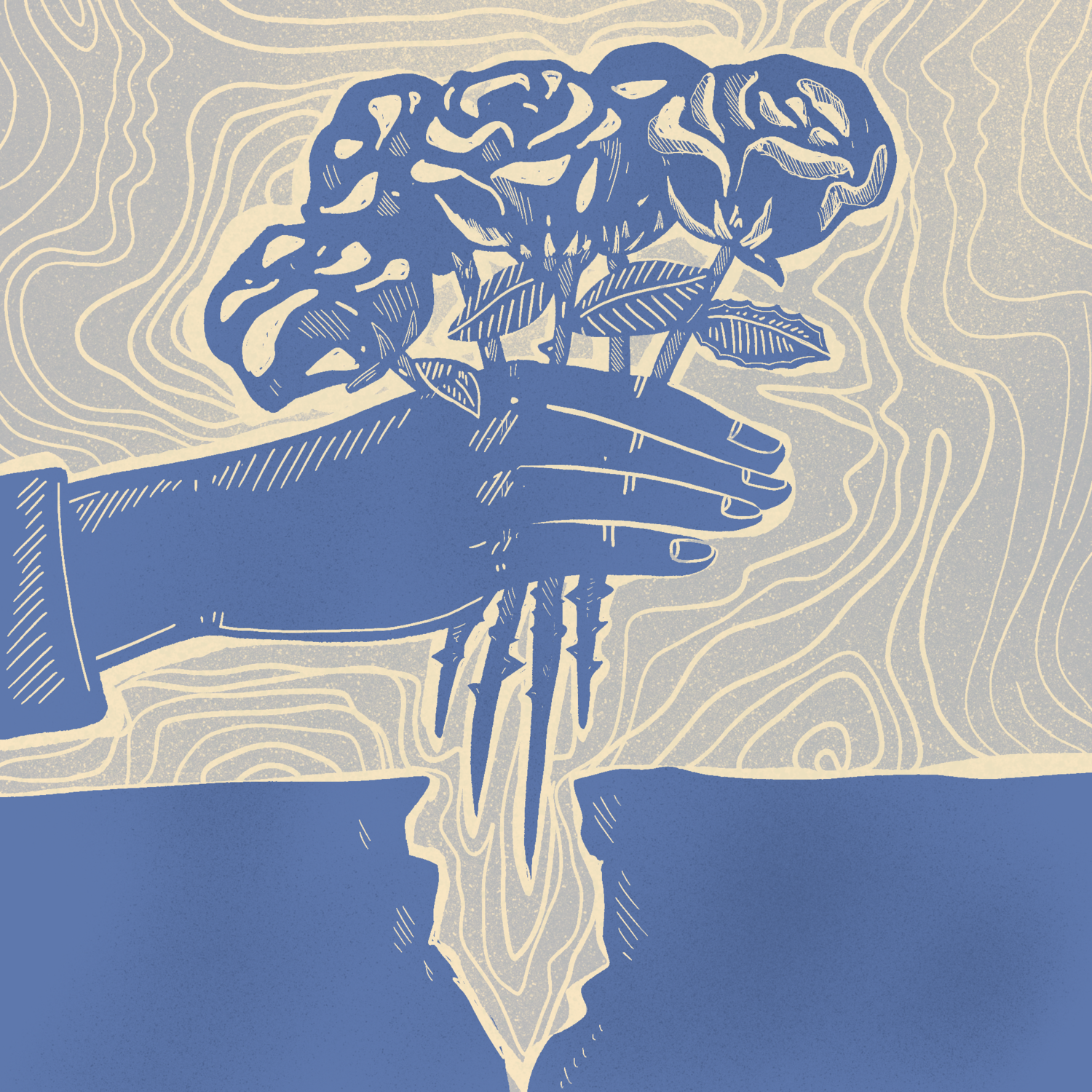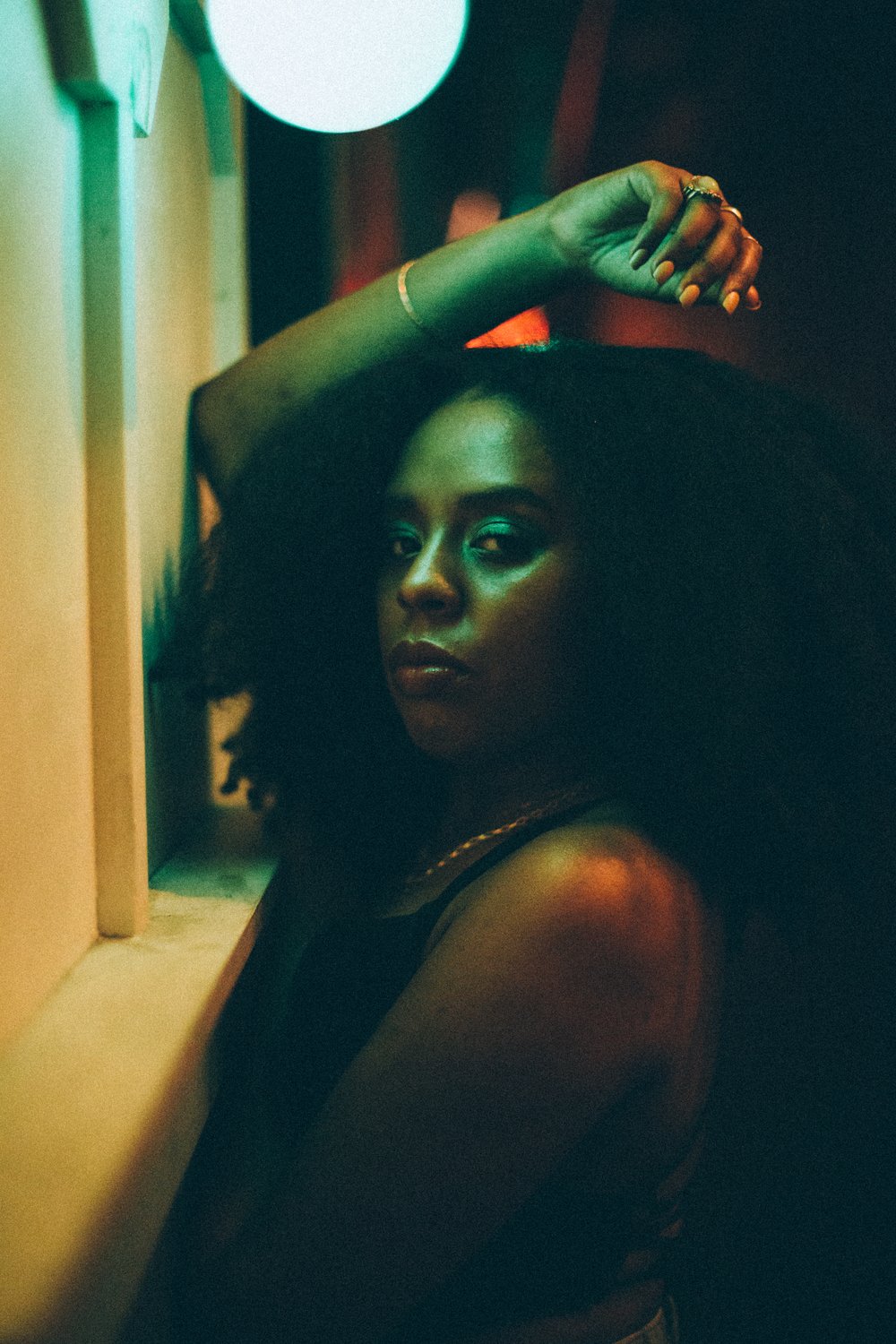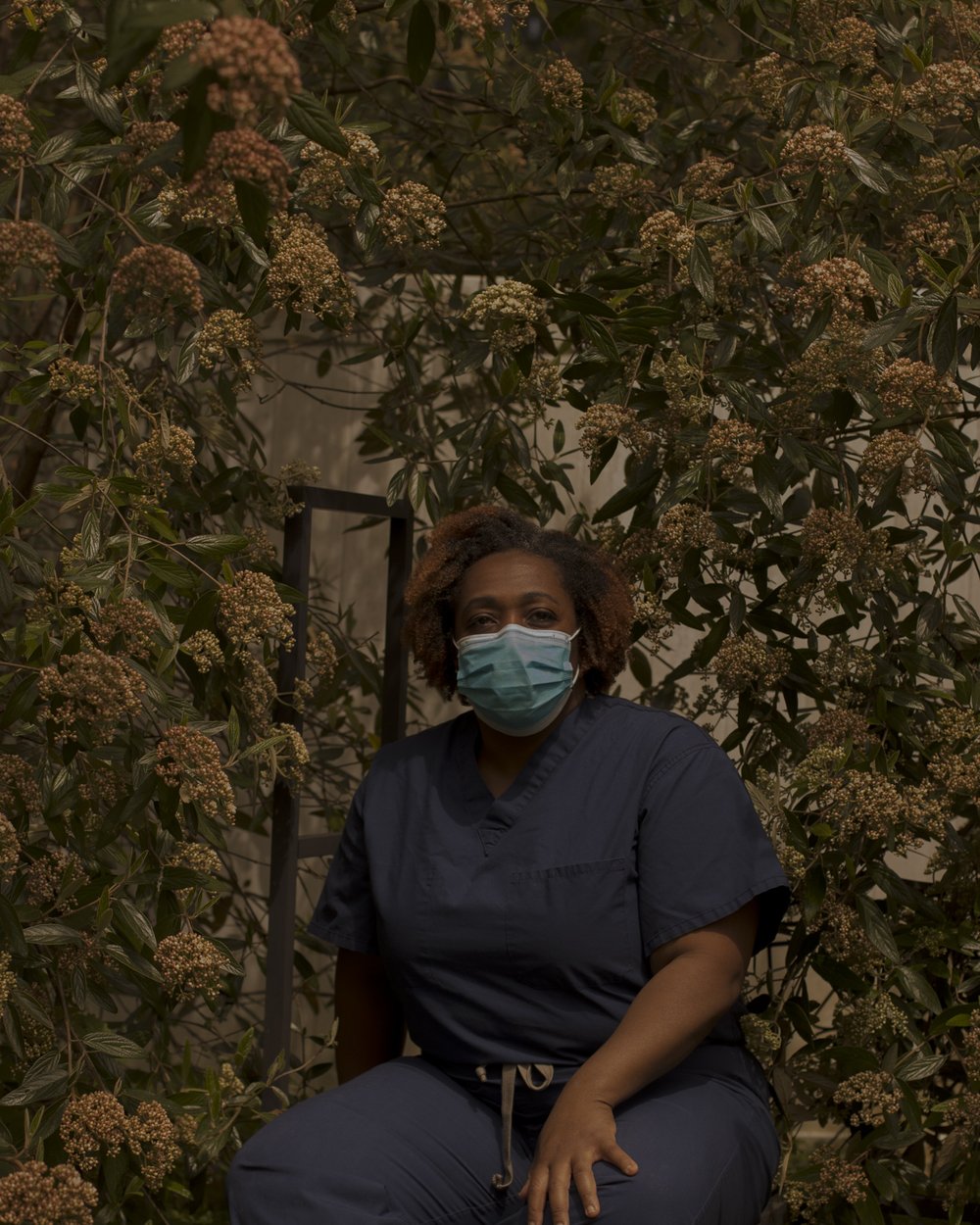December 2019: What brings you here?
It had been two months since I’d experienced the initial blow of a bittersweet breakup. Mentally, I thought I was terrible at romantic relationships as if it were a natural skill I’d been born with. Sometimes they would stick together for months, but the impending ends would unravel in the form of respectable goodbyes.
Friends’ experiences, online forums, and personal research recommended I enter into therapy and it would be my first time. Growing up as a Salvadoran-American, therapy was an unfamiliar luxury to both my parents and their families. Traumas etched throughout our family trees, injustices imposed and experienced for generations, and the emotional labor to just survive—these weren’t invited conversations at our dinner table; they were visual memories sealed with a blanket of silence that lived in the inner workings of how our relationships functioned.
Unbeknownst to me, therapy isn’t just about showing up and talking about your experiences. It involves work with a capital “W” and when it involves talking about your behaviors in relationships, suddenly I forget how to spell. Raised as the youngest of six children, no one told me that my parents' relationship, and my own relationship with them would be a key determinant on how my future relationships would look. Each passive-aggressive comment, hours of silent treatment, and disregard for vulnerability, unfortunately are learned traits. While I thought therapy would solve my issues within romantic relationships, I was awoken to a new personal journey...reparenting.
Session 5: Pongo mis maños en el fuego pa’ mis hijas.
Love was not a feeling; it was an act of survival for my parents, especially for my mom. Around friends and loved ones she freely expressed her undying love for my sisters and I, using this phrase throughout our lives: “I would put my hands in the fire for my daughters”. Transparency and loyalty were not separate entities from love, they were one collage in my mom’s eyes, in which love is not measured by consensus or forgiveness, instead it was sacrifice as she had learned and lived her entire life. Before I was born, my mom lived through some tough phases in her life: daughter of divorced parents, single mother, and survivor of domestic violence. Survival was her default setting and it was an unconscious inheritance I was given. When you’re raised with this fierceness, other forms of love seem alien. This inheritance would live in each relationship I had.
Session 10: Every relationship is a dance.
As a child, I adored her. From her vibrant jewelry to her sharp tongue, she was profusely open with her emotions and they flowed confidently into every space—the complete opposite of how I express myself. It was in this contrast that I developed a new identity in our relationship early on: her confidante. Just as high as hers, my expectations for her could reach the ceiling of any room so much so that we sometimes semi-drowned from misunderstandings and miscommunications about the things we never spoke about. And yet we still didn’t speak about them and these cycles of assumptions just kept rolling on, year by year..
Session 20: Holding space for your inner child.
This is another funny / sad truth about my parents: they don’t acknowledge nor apologize when they’ve done wrong. We could have an intense fight, in which words that should never be said are said, and then the next day they will have brewed coffee ready for me to drink at the kitchen table. No “I’m sorry” or “You know, I fucked up.” Instead, it was “Are you hungry?” or “Let me drop you off at school.” While these moments looked different as I entered my twenties, the unsaid became insidious like the slow breakdown of cement before a sinkhole appears.Once it’s broken, all the pent-up grief escapes.
Fast forward to 2020, my grief escaped—to say the least. My mom and I were grieving different things at the same time: for her it was job loss and my dad’s deterioration from diabetes, and, for me, my break-up and overwhelming pressure of productivity from my job. Grief can be blinding in such a way that two loved ones can’t recognize each other anymore and their limited sight only sees the other’s flaws. My mom and I were emotionally at a standstill and I retreated to the wounds of my inner child. In the past, I would transiently visit this state, avoid feeling all my emotions, and then try to get over it. Well, my therapist noticed this and called me out on my bullshit, which for once, I had to hold space for my inner child. I had to validate, honor, and be compassionate to everything she felt when I was younger. It started with asking myself “How do I feel?” each morning, incorporating selfcare especially on the rough days, and loving myself by practicing healthy boundaries. Soon this space started to feel like home.
Session 30: Letting go of the fantasy.
It took eight months to speak to my mom again. There weren’t any apologies or movie-like reconciliation. It was Valentine’s Day and I bought her roses because I knew she was never going to show up as the mother I wanted; she was going to show up as the woman she is. Months prior, my therapist repeated these phrases that became imprinted mantras whenever I thought about my mom, “Are you showing up as your adult self?”, “You have options,” and “You have to let the fantasy go.” Our multiple sessions on this subject seemed never ending and I doubted I would be able to speak with her again. It took a long time and our relationship is not the same as it once was, but it shouldn’t be. I’m not the same after reparenting myself; healthy boundaries and trusting myself are the new norm for me. Even when I fail at it, I’m okay because I know I can show up for myself when my mom can’t and I will still love her. Real love and healthy relationships are messy, full of emotional tangles and gracious forgiveness. It has to be seen for all its flaws, instead of a fantasy outside of who both people are.






